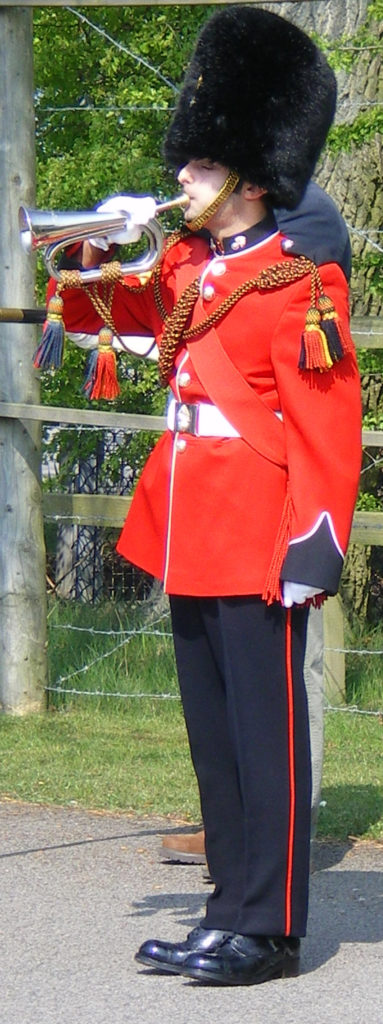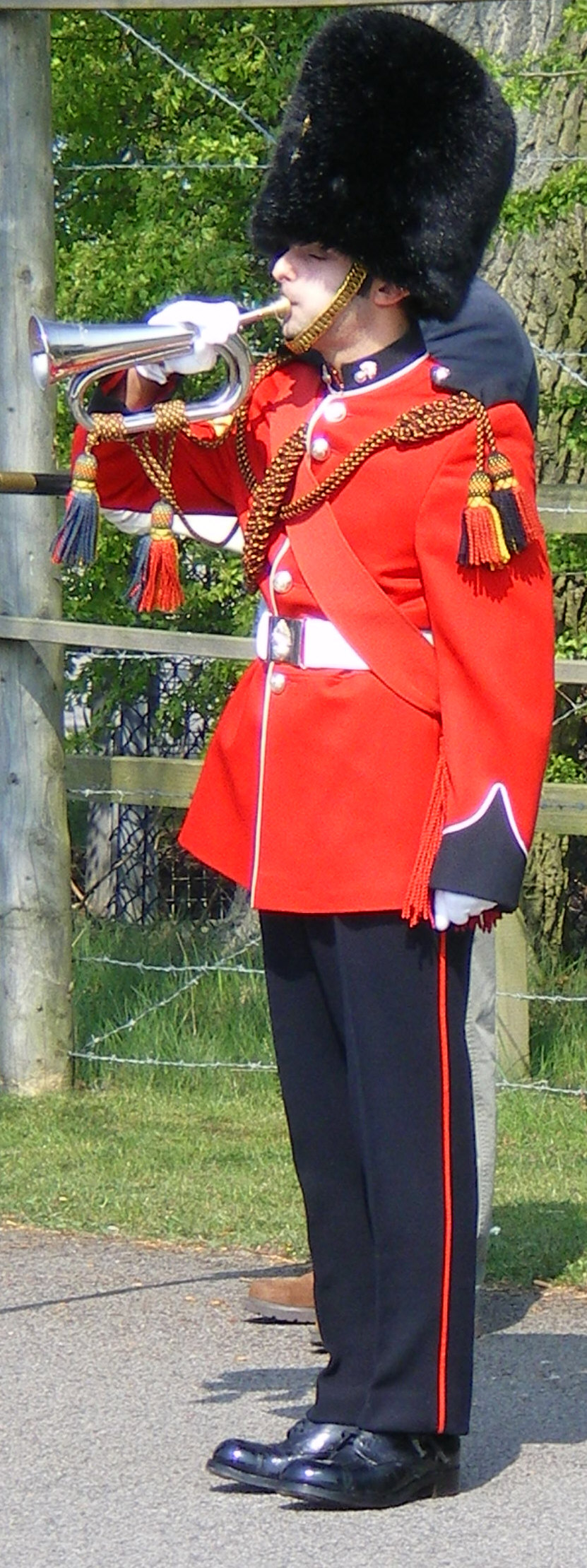Rog Stanton
In years gone by the British Army relied on a system of bugle calls for communication. Each soldier had to identify all calls otherwise he was in danger of getting into trouble or going hungry. From getting up in the morning, Reveille, to Setting the Watch at night and Lights Out, bugle calls were used to call soldiers on parade, to announce meal times, to contact orderly officers and for many other reasons. These calls are still used today in Regiments of the British Army and also in Commonwealth Armies.
Sunset is played at the lowering of Regimental Colours at night. The title of The Last Post took over from Setting the Watch in 1873. Originally the Last Post and the Setting the Watch was to confirm that a camp was now secure, the guard had mounted, the last sentry had been posted and all was safe for the night. Fifteen minutes after the Last Post had been played, it was followed by Lights Out when all lights had to be dowsed.

In the late 19th century there came a shift from using the Last Post in ‘communication calls’ to its deployment on ‘death and remembrance’ occasions – encompassing military funerals and memorial and commemoration events. The haunting refrain always stirs powerful emotions.
A bugle, which has no keys or valves, was used from the early nineteenth century. That such an instrument can produce something as heart rending and mournful as the Last Post, using no keys or valves, is entirely due to the skill of the bugler. It has often brought a tear to the eye of the toughest combatant while waiting at attention for the ‘two minutes silence’ to finish and for Reveille to be blown – and composure regained.
Over the last hundred years the Last Post has issued forth repeatedly – from the battlefields of the WW1, NW Frontier, India, WW2, Palestine, Malaya, Yangtze River, Korea, Suez Canal Zone, Kenya, Cyprus, Suez crisis, Oman, Borneo, Aden, Hong-Kong, Northern Ireland, Falkland Islands, Gulf War 1, The Balkans, Sierra Leone, Afghanistan and Gulf War 2. In my memory, the only period in which Britain was not fighting a war was a matter of weeks between the withdrawal from Aden in 1968 and the Northern Ireland troubles in 1969.
The bugle call which was originally intended to signify that all guard posts had been mounted and that a camp was safe for the night, now commemorates the ‘final rest’ of servicemen and civilians alike. Often played at funeral services for veterans, it is played throughout Commonwealth countries and is also to be heard at funeral services for high ranking dignitaries; it was, in fact, played at the funerals of Mahatma Gandhi and Nelson Mandela. Other countries may have their own ‘final bugle calls’ but it is the British Last Post that lingers on the memory.

